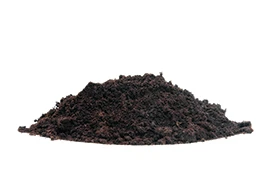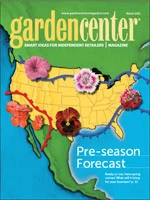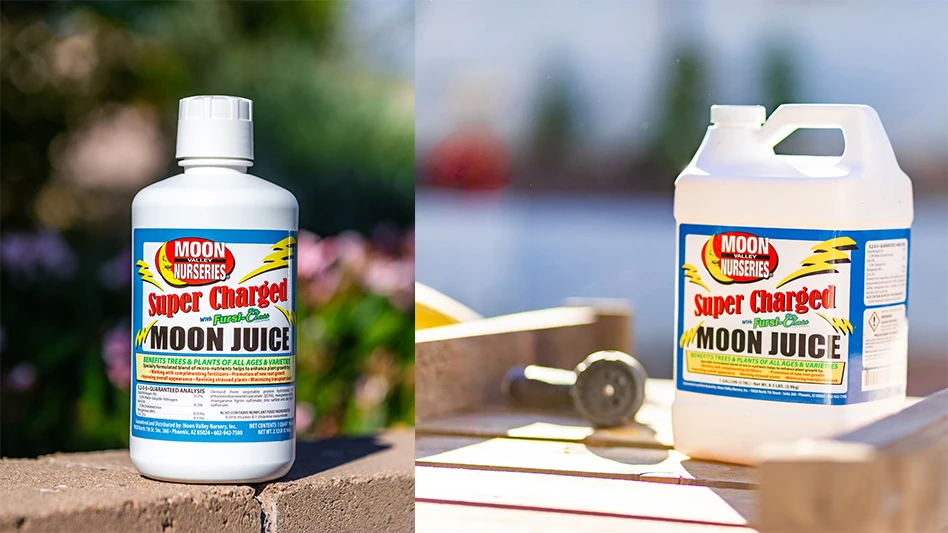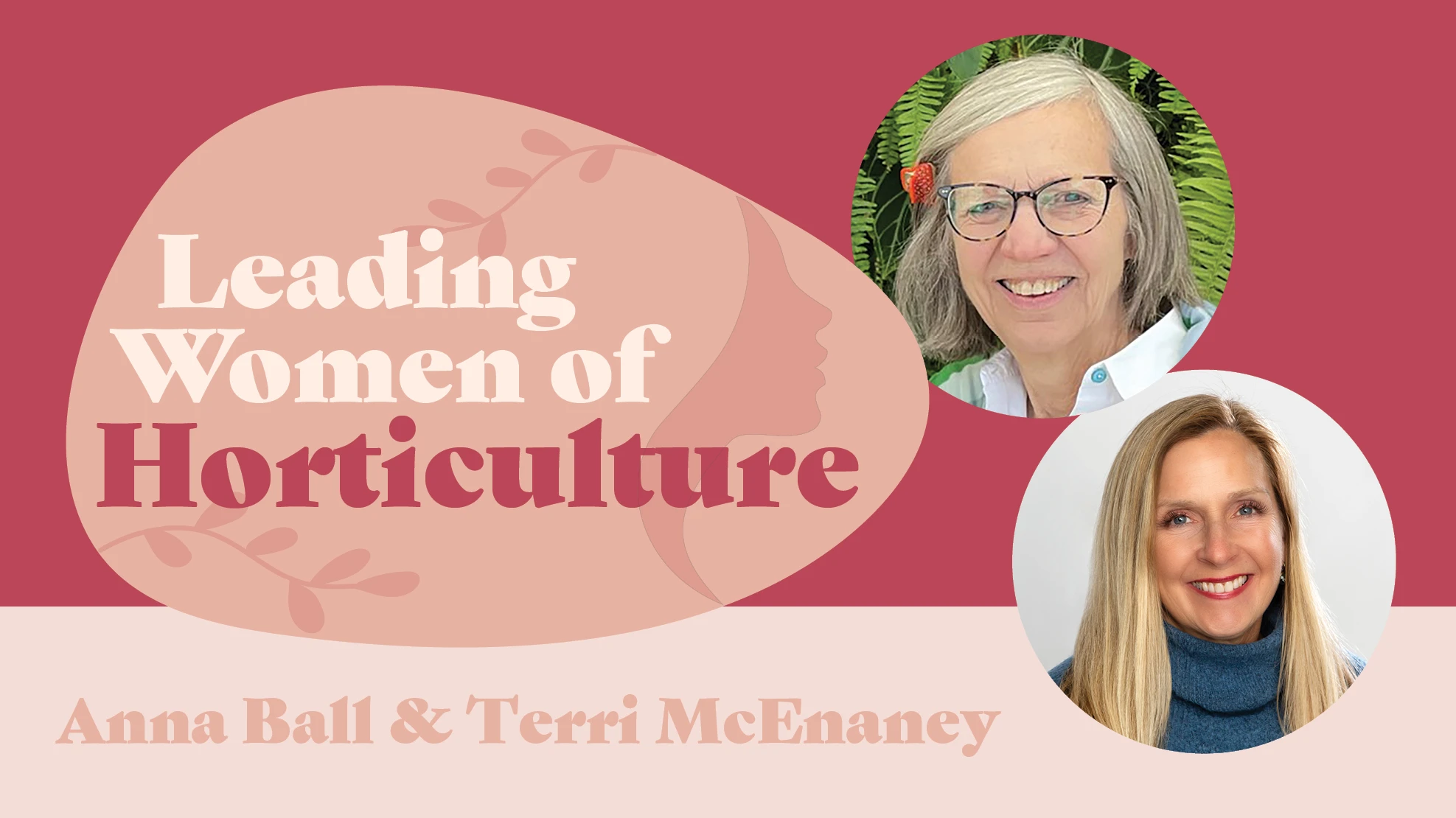|
 Premium soils aren’t sold at big-box prices. Let your customers know why.In today’s tough economic climate it’s hard to convince customers that buying premium soil at a premium price is worth its weight in gold. You know customers will achieve better results when they use quality soil over the cheap substitutions found in big-box stores. The challenge comes in communicating this to consumers. Garden centers have to hammer home that customers will see healthier plants—from the roots up—when they choose to use quality soil amendments. Premium soils aren’t sold at big-box prices. Let your customers know why.In today’s tough economic climate it’s hard to convince customers that buying premium soil at a premium price is worth its weight in gold. You know customers will achieve better results when they use quality soil over the cheap substitutions found in big-box stores. The challenge comes in communicating this to consumers. Garden centers have to hammer home that customers will see healthier plants—from the roots up—when they choose to use quality soil amendments.
Show efficacy
“The best marketing for our products are the products themselves,” said Heather Colburn with FoxFarm Soil and Fertilizer Co. “Let the plants do the talking. Use it in your store; give it to staff and landscapers to try. Once they use it, they will be hooked. You can be creative and cross-market with containers, vegetables, bedding plants, bare root, and more.”
Henry Ortland of Monrovia recognizes that soil amendments are not the first thing on customers’ minds. Instead, they’re concerned with buying plants and the end result of their gardening goals.
He suggests that retailers place soil amendments near the checkout counters to remind folks that they’re needed as part of the planting regimen. Also encourage employees to counsel customers on the benefits of buying quality soil for their plants.
“The independent retailer needs to help their customers understand that in gardening, like everything else, you get what you pay for,” Ortland said.
Ortland added that one of the hallmarks of garden centers is the employees’ level of plant expertise. Staff members should teach customers how to succeed in their home gardens with quality soils, which will hopefully encourage the clients to come back to the store to buy more soil amendments.
Bob Bollinger of ASB Greenworld provided a practical example of demonstrating the benefits of premium soil over another brand.
“People first believe what they can see and touch themselves,” said Bollinger. “Product samples show the ingredients and the qualities of premium soils. Signs at point-of-purchase and self-service specification data sheets help. This needn’t be over-complicated. Simple tear-off data sheets are easy to make. These should include more specific information such as typical laboratory results for nutrients, pH, etc.”
Bill Skerrett of ICT Organics offers a “professional’s” perspective. His company caters to lawn and landscape contractors with a selection of organic products.
“We don’t sell soil, but I can speak to the subject, and it always comes down to well-informed, easy-to-work-with service folks in the aisle; someone who tells you how to get the job done and what pitfalls there may be. The big box stores are known for their incompetence in the garden centers, if you can find someone to ask a question at all,” said Skerrett.
Research and development
Garden centers can also market premium soils by emphasizing the extensive research and development that premium soil companies conduct to produce products.
“There isn’t any one thing—no magic bullet—that makes our soil top-quality,” said ASB Greenworld’s Bollinger. “It is the holistic attention to every aspect of design and production that makes them top-quality. The bargain soil manufactures don’t make this effort. Bargain soils are simple, cheaply made commodities. The only criteria they use are being the cheapest at manufacturing and using any cheap and easy to find ingredients,” he said.
Chris Sexton, Fafard’s market manager for retail, said his company invests heavily in R&D—as opposed to flashy marketing campaigns. Fafard regularly tests its soil through its research and development and quality control programs.
“Our two programs are unmatched in the industry,” he said. “Fafard’s goal is to provide consistent quality bag after bag. Each mix we manufacture is evaluated with a number of quality control measures.
In addition to porosity, water retention, EC [electrical conductivity], and pH, we test 13 essential nutrients for plant growth: nitrogen, phosphorous, potassium, calcium, magnesium, sulfur, iron, manganese, boron, copper, zinc, molybdenum and chloride.”
Employee education
Garden center employees should educate customers on the value of premium soils. Also, they should help consumers recognize that the proof is in the plant’s health, so to speak, when premium soils are used for growing.
“You just invested lots of hard-earned money on beautiful plants that you expect to give you months of pleasure,” Bollinger said. “Saving a small amount by using cheap, poorly designed and inadequately manufactured soils seems inappropriate. Why not spend a small amount more and guarantee spectacular and enduring results from everything you grow?”
A member of the Garden Writers Association, Wendy Komancheck writes about agriculture, family and the green industry from her home near Ephrata, Pa. You can contact her at wendykomancheck@gmail.com.
|











